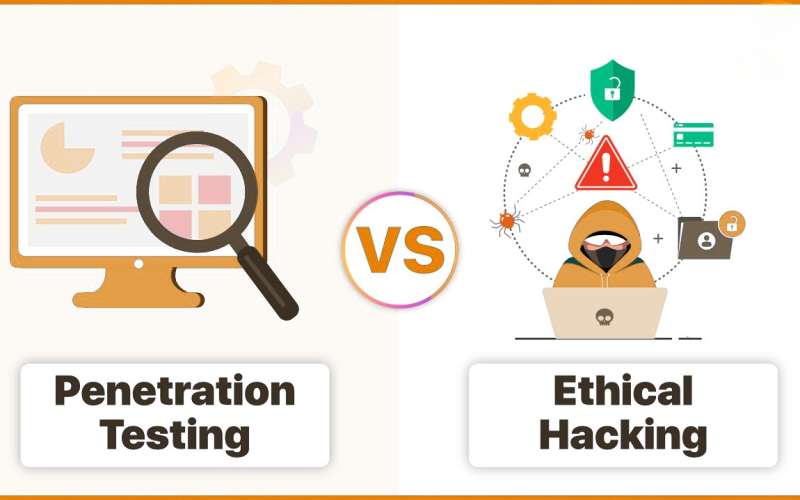Ethical Hacking vs. Penetration Testing: Key Differences & Career Paths

Explore the key differences between ethical hacking & penetration testing, career paths, skills, and salary insights in India & the US.
What is Ethical Hacking?
Ethical hacking involves simulating cyberattacks to identify vulnerabilities in systems, networks, and applications. Ethical hackers, also known as white-hat hackers, work legally to strengthen cybersecurity defenses and protect organizations from potential threats.
What is Penetration Testing?
Penetration testing (pen testing) is a specific type of ethical hacking that follows a structured approach to assess the security of a system. It involves attempting to exploit vulnerabilities in a controlled environment to evaluate security measures and recommend improvements.
Key Differences Between Ethical Hacking & Penetration Testing
| Feature | Ethical Hacking | Penetration Testing |
|---|---|---|
| Scope | Broad, covering all aspects of cybersecurity | Specific, targeting particular systems or networks |
| Objective | Finding security flaws and improving overall security | Identifying and exploiting vulnerabilities for assessment |
| Approach | Continuous security evaluation | Periodic security assessments |
| Certification | CEH (Certified Ethical Hacker), OSCP, CISSP | OSCP, GPEN, LPT, CPT |
| Job Roles | Cybersecurity Analyst, Security Engineer, Red Team Specialist | Penetration Tester, Security Consultant |
How to Become an Ethical Hacker or Penetration Tester?
- Educational Background – A degree in cybersecurity, computer science, or IT is recommended.
- Develop Technical Skills – Learn programming (Python, C, JavaScript), networking (TCP/IP, firewalls), and security tools (Wireshark, Metasploit).
- Gain Certifications – Ethical hackers should consider CEH (Certified Ethical Hacker), while penetration testers often pursue OSCP (Offensive Security Certified Professional).
- Hands-on Experience – Work on bug bounty programs, security research, and practical testing labs.
- Stay Updated – Cyber threats evolve, so continuous learning is crucial.
Roles & Responsibilities
Ethical Hackers:
- Conduct vulnerability assessments and security audits.
- Perform penetration testing to identify risks.
- Develop security solutions and recommend improvements.
- Report findings to organizations and help implement security measures.
Penetration Testers:
- Simulate cyberattacks to test system defenses.
- Use automated and manual techniques to exploit weaknesses.
- Provide detailed reports on security gaps and suggest mitigation strategies.
- Work with security teams to fix identified vulnerabilities.
Salary Insights in India & US
- India:
- Ethical Hacker: ₹6,00,000 – ₹15,00,000 per year
- Penetration Tester: ₹7,00,000 – ₹18,00,000 per year
- US:
- Ethical Hacker: $80,000 – $150,000 per year
- Penetration Tester: $90,000 – $160,000 per year
Conclusion & Future Scope
Ethical hacking and penetration testing are crucial cybersecurity careers that continue to grow as cyber threats increase. With businesses investing heavily in security, professionals in these fields will remain in demand. The future will likely see advancements in AI-driven penetration testing and automation in ethical hacking.
Keywords:
Ethical Hacking, Penetration Testing, Cybersecurity Careers, Ethical Hacker vs Pen Tester, CEH, OSCP, Security Testing, Red Teaming



Write A Comment
No Comments